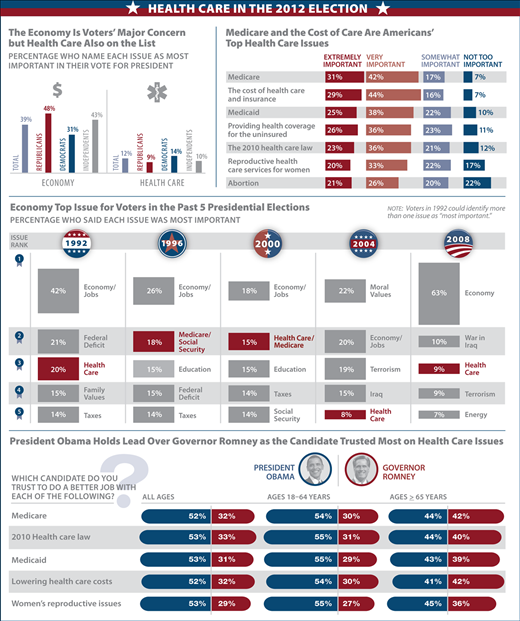This election year has been a roller coaster ride of events with people seemingly polarized like never before, but no matter the stance of the individual, one thing remains clear…..Health Care looms large in this election (the second most important issue behind economics). In the spirit of health care, and how it impacts the election, we thought we would share with you one of our favorite healthcare infographics. We hope that you enjoy
2013 Election Issues Revolving Around Healthcare
The 2013 election in the United States was marked by several significant issues, with healthcare playing a central role in the political discourse. At the forefront was the implementation of the Affordable Care Act (ACA), commonly known as Obamacare, which aimed to expand access to healthcare and reform the health insurance system. Here are some key healthcare issues that dominated the 2013 election:
- Obamacare Implementation: The ACA, signed into law in 2010, faced ongoing challenges in its implementation in 2013. Critics argued against the individual mandate, which required most Americans to have health insurance, and there were debates about the effectiveness of health insurance exchanges.
- Medicaid Expansion: One of the key components of the ACA was the expansion of Medicaid to cover more low-income individuals. However, several states, mostly led by Republican governors, opposed this expansion, creating a divide on how states should handle Medicaid.
- Healthcare Costs: Rising healthcare costs were a significant concern. Candidates and policymakers debated strategies for controlling costs while maintaining or improving the quality of care. Discussions included the role of insurance companies, pharmaceutical pricing, and the overall efficiency of the healthcare system.
- Pre-existing Conditions: The ACA aimed to protect individuals with pre-existing conditions from being denied coverage or facing higher premiums. This provision was a focal point of discussions, with some politicians advocating for its preservation and others pushing for modifications or repeal.
- Role of Government in Healthcare: The 2013 election saw a broader debate about the appropriate role of government in healthcare. While Democrats generally supported the ACA and government intervention to expand coverage, Republicans expressed concerns about the government’s involvement and favored market-driven solutions.
- Healthcare Access: Access to healthcare services, especially in underserved areas, was another critical issue. Candidates addressed concerns about the availability of healthcare providers, the impact of the ACA on rural healthcare, and strategies for improving overall access.
- Employer Mandate: The ACA included an employer mandate requiring certain businesses to provide health insurance to their employees. This provision generated discussions about its potential impact on businesses, employment, and the economy.
The 2013 election reflected the ongoing national conversation about healthcare reform and the implementation of major policy changes. The issues raised during this period continued to shape the trajectory of healthcare policy and politics in subsequent years.
Health Care Looms Large in Election

